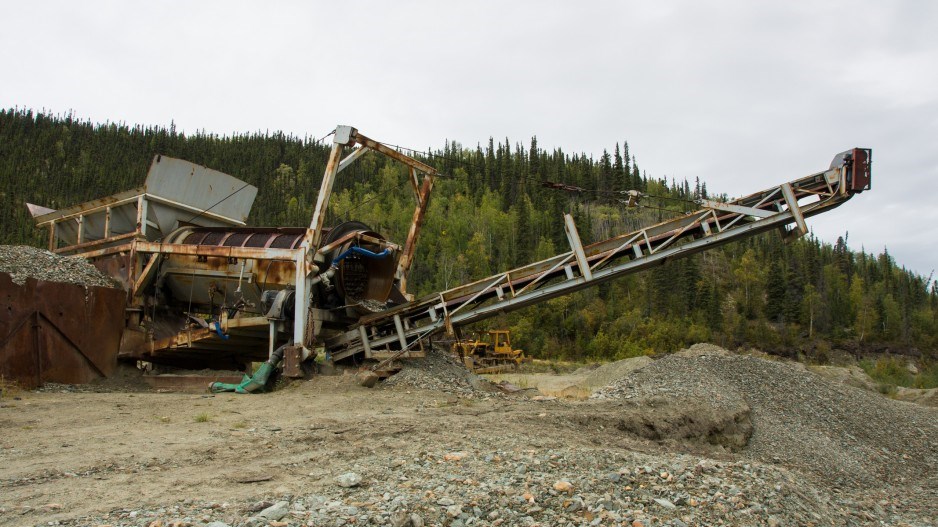Using excavators in or near streambeds to dig up gravel and sand in the hunt for gold can be devastating for fish and fish habitat, says the BC First Nations Energy and Mining Council, which is calling for a moratorium on placer mining in B.C.
Placer mining is a small-scale approach to gold mining that typically involves miners using shovels or machines – backhoes and excavators -- to scoop gravel and sand out of deposits in or near streambeds and then washing out gold particles.
“Placer mining destroys stream channel stability, eliminates pools, spawning beds, wetlands and other key fish habitat, and removes critical streamside shading vegetation,” says a study by the University of Victoria’s Environmental Law Centre. “It drastically reduces fish populations. In addition, placer mining devastates riparian habitats – amongst the most productive of all terrestrial wildlife habitats, and a rich source of medicinal plants.
“Modern placer mining can mobilize highly toxic mercury from historic placer mining into a watershed – which can have devastating impacts on ecosystem and human health.”
Provincial regulations governing placer mining are outdated, the council says, and “remains rooted in nineteenth-century gold rush laws and policies that ignore Indigenous rights and continue to fail to mitigate serious environmental harms.”
“Last year, the First Nations Summit Chiefs in Assembly passed a resolution which acknowledged the detrimental environmental impacts of placer mining and called for an immediate moratorium on the issuance of new placer claims and leases in B.C.,” First Nations Summit political executive Robert Phillips said in a press release.
“Placer mining activity has continued unabated since our first call for action, and it is time for B.C. to finally recognize and address the substantial harm this industry inflicts on First Nations communities and the environment at large. A moratorium on new placer claims and leases is the first step in bringing the Mineral Tenure Act into accord with the UN Declaration on the Rights of Indigenous Peoples and the Declaration on the Rights of Indigenous Peoples Act.”
“The lack of ongoing and meaningful consultation, violation of First Nations rights and sacred sites, and environmental impacts that exist within the antiquated placer mining system damages the livelihood and well-being of First Nations communities,” Terry Teegee, regional chief of the BC Assembly of First Nations, said in a press release.
“It is essential that the B.C. government immediately address our concerns regarding the industry and take decisive steps to protect waterways, honour First Nations rights and foster sustainable and long-term economic development.”




